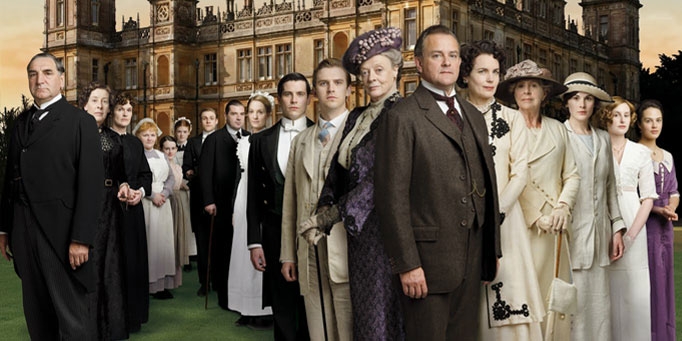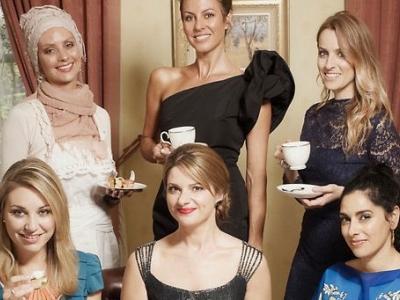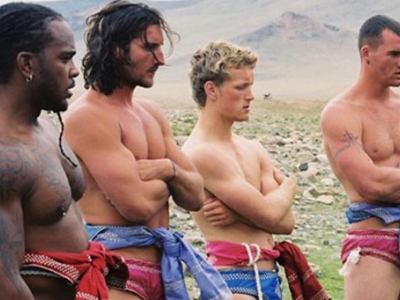
Downton Abbey: TV Review
The second season of Downton Abbey picks up with the first World War in full swing and though half the village is off to fight, service is still on the minds of those who stay and those who go.
The second season of Downton Abbey picks up with the first World War in full swing and though half the village is off to fight, service is still on the minds of those who stay and those who go.
For those of you who missed the first season – unlucky! – Downton Abbey is a drama built around the aristocratic Crawley family and their slow emergence into the 20th century. It is 1916 and Lord Crawley, Earl of Grantham enters, still hoping that he will be able to save his wife’s inheritance and marry his daughter to Matthew Crawley, his third cousin. Matthew has become the heir to his estate and title due to some untimely deaths. However the recalcitrant cousin has taken a commission in the army and returns to put a cat amongst the pigeons by announcing his engagement to someone else.
Contemplating war
The second season of Downton Abbey is as visually rich and dramatically engaging as the first, thanks especially to the talents of stars Maggie Smith, Hugh Bonneville and Jim Carter. And as before, it is the stories that take place in the servants' quarters that derive the most interest. Everyone above and below stairs is contemplating what the war requires of them. Some serve grudgingly, others like the valet William (Thomas Howes) struggle with the idea of not being able to follow the other men to the front line. When he expresses his frustration, the cook gives him the benefit of her years of experience:
William: My father still doesn’t want me to enlist.
Mrs Patmore: Your father doesn’t have anyone else but you – who can argue with him?
William: So I stand by while the lads on the farms and in the gardens go to war. Even Thomas has enlisted. He’s fighting for his king and country and I’m not.
Mrs Patmore: Well I dare say you won’t have long to wait.
William: Well I hope you’re right.
Mrs Patmore: Do you? Well I don’t! I hope very much that I am wrong.
It must seem quaint to modern audiences, the idea of volunteering to be involved in a war. It seems to be only in Christian circles that you ever hear of someone talking about the value of dying for something that wasn’t intensely personal – another reflection of our obsession with the rights of the individual. However what continues to be relevant is Downton Abbey’s presentation of the youthful take on sacrifice.
What makes a worthy sacrifice?
Young people tend to view sacrifice in terms of the dramatic – millions of dollars given away, life-threatening rescues, spontaneous gifts of love. There’s nothing wrong with these examples, they’re just not the examples you’d expect to meet every day. They are sacrifices of the moment, not of a life-time. J. D. Salinger wrote in the classic Catcher In The Rye,
“The mark of an immature man is that he wants to die nobly for a cause, while the mark of a mature man is that he wants to live humbly for one.”
Young Christian men and women can be like William, longing to get to the war and failing to see the quieter, humble service that waits for them on their own doorstep. Though much, much more should be made of the sacrifice that Jesus made on the cross for us, it shouldn’t be done at the expense of the three decades of faultless life he lived for us, that gave his sacrifice meaning. Rather than long for the day they can take up a ‘ministry’ we would do well to encourage our children to discover what opportunities, and which people, God has placed in front of them to serve today. I can’t think of a better way of preparing someone for great opportunities than to see them develop the humility God grows through unnoticed labour.
Watching Downton Abbey with your kids
One of the great advantages of period drama is that it can present real, human stories without the sort of language and behaviour that earn MA ratings. If you’ve got teens in the room, try and draw out the idea of humble service with questions like:
- Is the work that William, Mrs Patmore and the others are doing 'worthwhile'?
- Why doesn’t William put any value on his work?
- Which is more important – what others think of your sacrifices, or what God thinks?
For more articles from Growing Faith, subscribe to our monthly e-newsletter.
To hear about the latest books and resources from Youthworks Media, subscribe here.







